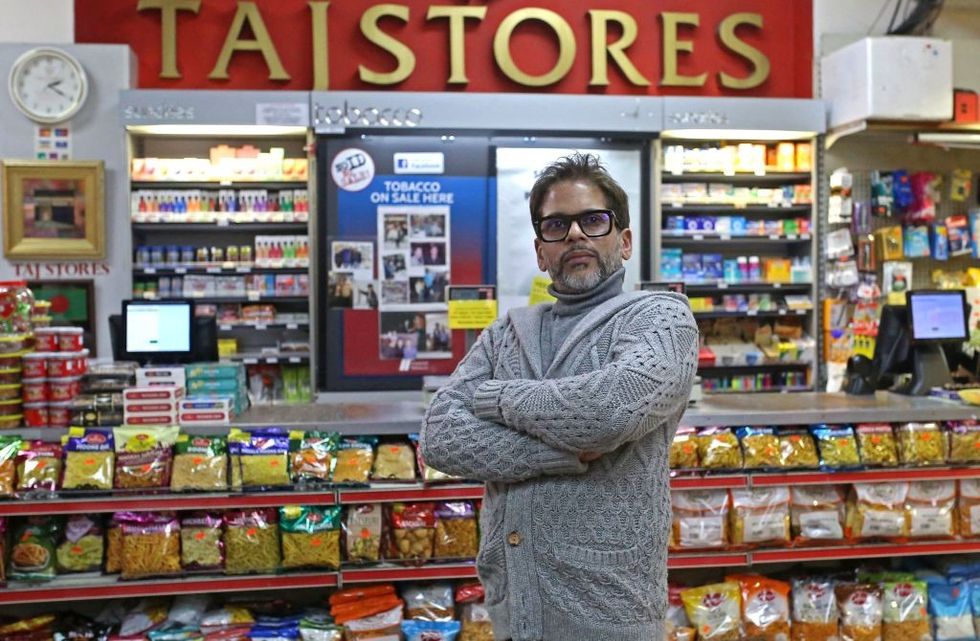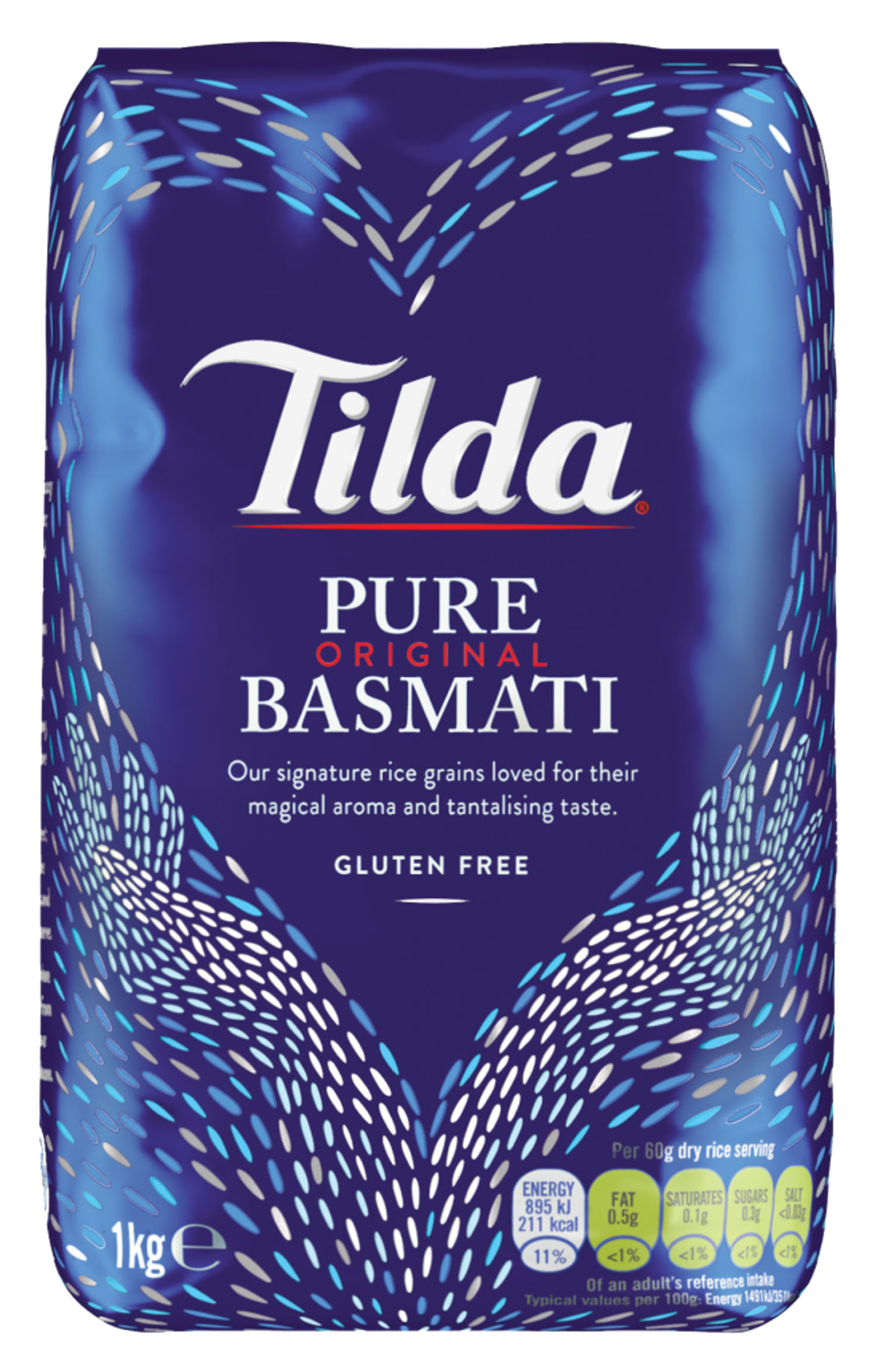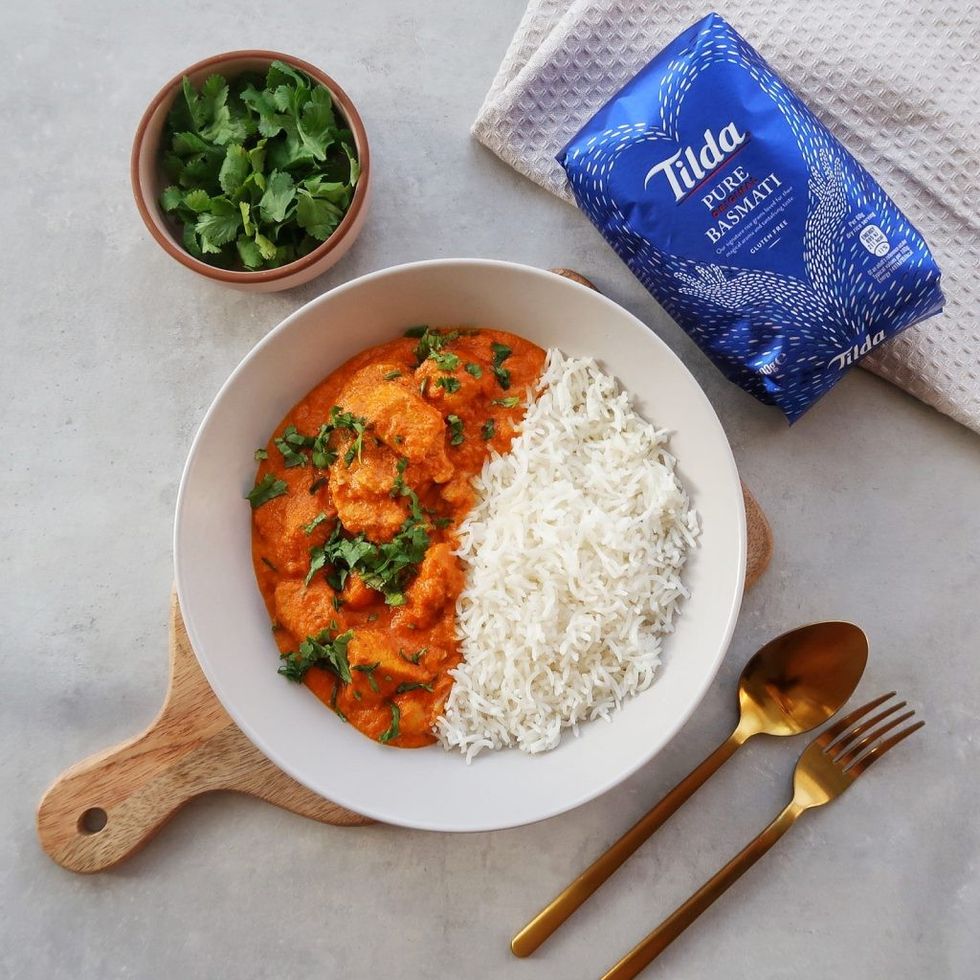Fasting for Ramadan can still mean exceptional sales of food and drink
This year, Ramadan is expected to begin on 11 March and end on 9 April depending on the sighting of the moon. The festival marks a month self-restraint for Muslims, who now make up 6.5 per cent of the population, with 3.9 million people in England and Wales identifying as Muslim the 2021 census.
While Muslims refrain from food and drink, including water, from dawn to dusk during the month, it is also time for celebration and joy. At sunset, families gather for the fast-breaking meal known as iftar.This meal includes dates, fruit, soup and traditional desserts plus drinks such as juice, milk, soft drinks and caffeinated beverages, followed by dinner.
Before sunrise, there’s a pre-fast meal known as suhur, which often resembles breakfast, but may include more dinner-like foods. And, between these two meals, Muslims are allowed to snack at night, alongside plenty of fluids to maintain hydration.
In other words, Ramadan has the potential to provide a massive sales boost to food and drink retailers, despite it being a month of fasting. Retailers whose stores are located in areas with Muslim populations can offer a selection of Ramadan products, to tap into this opportunity.
The Ramadan economy
A first-of-its-kind reportin 2018, “The Great British Ramadan” by advertising firm Ogilvy, found that Muslims were spending at least £200 million during the month-long Ramadan season, even back then, and particularly on food and gifts.
The Ogilvy report identifies six key trends for British Ramadan – spirituality, charity, celebration, community, food and drink, and health and wellness – and local convenience stores who often sit the heart of their communities are well placed to cater to several of these trends.
Last year, soaring prices has put a bit of a dampener on Ramadan celebrations, however. Grocery shopping habits have changed for many over last year, with over one third (34 per cent) choosing to save on groceries to combat rising living costs while over 40 per cent turned to discounters such as Lidl and Aldi when preparing for Ramadan and Eid.
This was evident on east London’s Brick Lane, where retailers were unusually quiet last year as people were “purchasing what they need, necessities, not extra things like they normally do”, as Jamal Khalique, co-owner of Taj Stores, reported.
The historic street is the hub of London’s Bangladeshi community, and normally a vibrant destination for shoppers during the Islamic holy month.
Business has also been down across the road at Rajmahal Sweets last year, which would normally be bustling with shoppers picking out iftar treats to break the daily fast.
Rajmahal worker Ali said customers who once bought two to three kilograms now only purchase a half-kilo of offerings such as jalebis – swirls of deep-fried batter soaked in syrup – and sugar-dusted Turkish delight.
With grocery price inflation easing – the figure stood at 5.3 per cent in February, its lowest rate since March 2022 and a decrease of 1.5 percentage points from January [Kantar] – things are looking up for shoppers this time.
Convenience and quality

Jon Calland, head of sustainability and external affairs at Tilda, observes that consumers have been opting for more convenient and high-quality grocery products in recent years.
“Occasions like Ramadan and Eid are important times of the year for family and loved ones which creates consistent demand for new recipe inspiration,” he says.
“The versatility of rice allows for the creation of a wide variety of dishes: Tilda offers a range of products, from Pure Basmati to Fragrant Jasmine and over 26 ready-to-heat flavours to suit many different cuisines.
“Consumers are also seeking time-efficient options for preparing traditional iftar meals without compromising on taste. Tilda Pure Basmati rice 250g has been awarded with the 2023 Great Taste Awards, making it an excellent solution for consumers with busy lifestyles during this festive period.”
For consumers who are in a rush and are fasting over this holy period, stocking convenient products such as Tilda’s microwavable range could be a great time saver, Calland adds.
“Tilda’s Steamed Pure Basmati 250g is the best-selling branded ready-to-heat SKU and Tilda also has the best-selling branded SKU in RTH in Brown, in Pilau, and in Coconut,” he notes.
“Retailers should consider stocking smaller pack sizes such as 500g, 1kg and 2kg for those consumers with small households. Tilda has the two biggest-selling Dry Rice SKUs which are Tilda Pure 1kg and Tilda Pure 500g and these are also available as price marked packs.”
Tilda has launched a comprehensive 360-degree marketing campaign for this Ramadan. With a central theme of “Sharing is timeless”, the brand is executing a robust outdoor campaign across key areas in the UK, including London, Manchester, Leicester, Luton, Birmingham, and Bradford.
Alongside this, Tilda has established a prominent presence on Asian TV and radio channels through spot ads and premium sponsorships. Moreover, the brand has introduced a newly launched blog about Ramadan around the world (tilda.com/blog) and innovative recipe ideas, offering consumers content that resonates with the spirit of the season.
Outside the world of rice, Tilda has recently launched Tasty Sides, which are combinations of vegetables and pulses in a rich sauce and one of your five a day.
The new range is available in four flavours: Mexican Fajita, Indian Black Dhal, Chinese Black Bean, and Thai Green Curry. With each serving being high in fibre and containing fewer than 250 calories, Tasty Sides offer a nutritious and flavourful partner to rice.
Ramadan is also a time for giving and community, and Tilda has partnered with the Felix Project since its foundation—a charity that aims to reduce food surplus and food poverty.
Tilda donates its microwavable pouches to their food banks, and since 2022, has been supplying rice in bulk to Felix’s Kitchen. This support has helped Felix’s Kitchen achieve a record-breaking year by providing 1,114,234 meals, of which over 65 per cent were distributed with Tilda rice.
“Ramadan is a great opportunity for independent retailers to stand out in the market and drive sales. Our market leadership, reflected in Tilda's strong performance in big bag sales and the popularity of our 5kg Dry Rice SKUs, establishes us as the go-to brand for retailers seeking quality and variety for their customers,” Calland states.
“We’re proud that we're officially the first rice company in the UK to be B Corp certified which means Tilda has met the high standards of social and environmental performance. I’m also particularly excited to introduce our latest product range, Tasty Sides, a delectable blend of vegetables and pulses in a rich sauce—a perfect addition to the Ramadan table. As we adapt to evolving trends, Tilda remains a must stock brand, offering both quality, taste and convenience during this holy month.”
Always exotic
Barr Soft Drinks is encouraging retailers to stock up Rubicon, the UK’s leading Exotic Juice drink brand, to cater for the demand of trusted, authentic brands during occasions such as Ramadan.
“Traditional shoppers will be looking for brands that they know and trust, and our research shows that Rubicon shoppers are loyal over celebratory period. During Ramadan, 90 per cent of Asian soft drinks sales are Rubicon [Circana, Ramadan 2023 vs 2022], demonstrating how important the brand is for people as part of this significant cultural occasion,” comments Jonathan Kemp, commercial director at AG Barr.
Rubicon was the only brand to drive growth during Ramadan in 2023 and the only brand to bring in new shoppers during the period [Kantar Ramadan 2023 vs 2022].
“We see shoppers stock up on multipacks early on, then top up with singles and 1L packs during the 4 weeks of Ramadan, switching back to bulk buys for Eid,” Kemp reveals.
“New shoppers use events and celebrations as inspiration to try something new, so Rubicon’s wide range of flavours and formats, available in still and sparkling variants, has broad appeal with shoppers catering for a number of different tastes amongst family and friends.”
Barr has a range of Rubicon products that cater for all shoppers’ needs, with the brand’s bold, bright and fruity range perfectly placed to help retailers maximise sales opportunities.
“Retailers should focus on the Rubicon Still range early in Ramadan when consumers are fasting and then move towards Sparkling closer to Eid celebrations to maximise incremental sales,” he suggests, adding:
“Creating in-store theatre early on is important to drive soft drinks sales during occasions such as Ramadan, as well as making the most of POS on the fixture, retailers should signpost the category and event to entice shoppers into the category.”
Alcohol-free opportunity
Last year, specialist trade supplier of alcohol-free drinks Wise Bar Trader produced a list of drinks that are “Muslim-friendly”, to simplify the search process for anyone thirsting for a wider choice of drinks to stock.
The list has been launched to provide alternative suggestions of drinks to share at iftar and beyond the end of Ramadan in association with its consumer-facing website Wise Bartender.
With a range of over 450 alcohol-free products in stock, the retailer publishes categories that enable customers to reference specific dietary requirements including gluten-free, vegan, low sugar and has now added Muslim-friendly to its website. The same products are available for trade customers who can also benefit from the new categorisation.
“We are always responsive to the needs of our customers and noticed that we were starting to get queries asking which of our alcohol-free drinks were Muslim-friendly,” Tom Ward, founder of Wise Bar Trader, commented at the launch of the list.
“In particular, we realised that there was a demand for refreshing drinks that are lower in sugar than some of the options traditionally drunk after sunset during Ramadan. We have initially identified 20 products that are suitable, including a range of mocktails, and have set up a separate category to readily identify those drinks that are Muslim-friendly.”
For anyone who wants to explore stocking alcohol-free drinks but wants to try a variety rather than buying in bulk, Wise Bar Trader can supply anything from an individual bottle or can rather than requiring a multiple unit or case purchase. There is no minimum spend, free delivery on orders over £99 (exc VAT) and a free curation service to help choose the best range of alcohol-free drinks for individual outlets.
“By classifying drinks as Muslim-friendly, I hope that Wise Bar Trader can provide a more efficient service for our customers who are supporting the Muslim community during Ramadan” added Ward.
Competing effectively
Independent retailers such as those on Brick Lane are seeing more competition from supermarket giants like Tesco, Sainsbury’s and Asda, which have been targeting Muslims with their own Ramadan ranges.
“They can afford to slash their prices. We can’t. So obviously, they do divert the customers to them,” Khalique added.
Calland says it’s essential for independents to create a one-stop-shop experience for customers seeking a comprehensive selection of Ramadan essentials to take on the competition from the supermarkets.
“To start, independent retailers should ensure their shelves feature reputable brands that consumers trust, such as Tilda which is the UK’s No.1 rice brand in volume.The 5kg size is highly favoured among certain consumers and Tilda has the biggest selling 5kg Dry Rice SKU in the market, Tilda Pure Basmati 5kg,” he recommends.
Offering larger pack sizes such as 10kg, and 20kg would be a strategic move during Ramadan, he added, catering to consumers who prefer bulk buying for the season.
“I is especially beneficial for those who may face challenges purchasing these larger sizes in mainstream stores. Tilda is a brand experiencing notable growth in value (+18.1 per cent) and volume (+12.4 per cent) in Big Bag sales,” he says.
A variety of different grains could offer consumers more choice and inspire them to create dishes from all over the world, he says, noting that Tilda is the No.1 brand in Jasmine block packs which could inspire consumers to create Thai curries or a luxurious kheer during this festive season.
Beyond rice, retailers should also stock essential Ramadan items such as flour, oil, spices, and other pantry staples to cater to the diverse needs of customers during this holy month.
He also advises retailers to also sell ready-to-cook iftar items like samosas, pakoras, or special Ramadan sweets to drive sales as this enhances convenience and caters to individuals with limited time.
“Independent stores can also enhance their Ramadan sales by hosting a dedicated promotional week, attracting local customers, and providing a unique shopping experience compared to larger multiples.” he concludes.
Enhancing store experience
For independent retailers, each transaction has the opportunity to provide valuable insights into customer purchasing habits, especially during Ramadan, when shopping patterns change.
Retailers can expect to see spikes in sales at different times of the day throughout Ramadan. For instance, an independent retailer situated near a mosque might see an increase in transactions after nightly prayers, but fewer transactions during the day.
Not having the tools to track this data effectively can limit businesses, giving them an incomplete picture of customer habits.
Another core issue that many smaller retailers face is the time taken for funds to settle following a transaction, making cash flow unstable and unpredictable. In some instances, retailers may not see funds from transactions in their accounts until several days after a purchase. This lack of complete transaction data and delayed settlement of funds can negatively impact cash flow and inventory management, potentially leading to missed sales opportunities due to under-stocking of in-demand items, and the lack of available cash to restock as appropriate.
However, there are solutions to both of these core problems, technology that provides retailers with up to the minute transaction data as well as effective cashflow management tools, Mhouse Business Solutions, the Motherwell based company behind Mpos POS system, says.
“Retailers with a Viva.com account can benefit from near-instant access to funds from transactions – including at weekends – and see real-time data as well, helping them enhance their business operations,” the company said.
Real-time data from transactions also serves a purpose beyond inventory management. It can be used to enhance merchandising strategies and a customer’s overall shopping experience.
As Muslims during Ramadan are likely to shop for products to prepare for suhur and iftar, independent retailers can identify the most frequently purchased items for these meals and position them strategically near the point of sale by analysing transaction data.
“This approach helps drive sales and facilitates a quicker checkout process for customers seeking specific items. As an example, retailers may observe an uptick in sales of pulses and vegetables during Ramadan, as these are common ingredients in traditional dishes. By positioning these staples closer to the checkout area, retailers can simplify the shopping experience for those buying last-minute essentials.” The company said.
As customer spending in stores increases during Ramadan, retailers should also account for the heightened footfall and the likelihood of queues at specific times of day. This is particularly the case for retailers with limited space on the shop floor which may become congested with larger volumes of customers. In these instances, it is important to consider the layout of your shop and where customers can pay for their products.
“Customers are increasingly looking for flexibility at the checkout, and a long queue forming from the till to the street can be unappealing. For example, a customer rushing from work to purchase their Ramadan shopping, may choose to shop elsewhere if they see a queue forming. However, flexible and convenient payment options that help to minimise queuing and enable payments to be processed anywhere help both merchants and their customers,” Mhouse said.
The Viva.comTerminal allows retailers to process payments anywhere. Retailers no longer even need to invest in extra hardware, and can instead turn their smartphones or tablets into a payment terminal. They can download the terminal on their device and begin accepting payments from customers instantly. The terminal works across a huge range of different devices, such as smartphone and tables which sync together, meaning retailers can deploy staff across the shop floor or in areas with higher footfall to accept payments.

For small to medium sized retailers in particular, having an integrated payments solution within an EPOS system is critical to manage during busy periods.Mpos, which utlisisesViva.com’s technology, connects supplier data links with major wholesalers. This allows businesses to efficiently control their stock management whilst the integrated payments solution minimises potential losses to variables such as human error, connecting all the key components vital to the day-to-day management of customer businesses.
“Making the switch to Viva.com was undoubtedly one of the best business decisions we’ve made,” Daniall Nadeem, an Mpos retailer and owner of SPAR Motherwell Road, says.
“The benefits we’ve experienced have been nothing short of transformative – from significantly lower processing charges, to settlements arriving in our account by half past midnight, and lightning-fast transaction times that have helped us avoid queues and build-ups in-store.”
Ultimately, independent retailers can use their distinctive strengths to create a positive shopping experience, during Ramadan and beyond, that differentiates them from larger chains. This could be their ability to extend opening hours and accommodate late-night customers, or their nimbler approaches to inventory management which ensure product availability aligns with customer needs.










